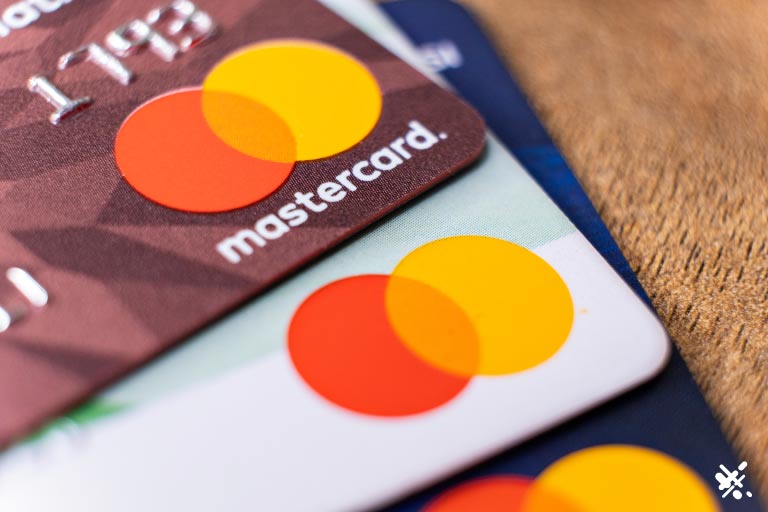A nonprofit’s health and strength is directly tied to the generosity of its donors. This means that for any nonprofit, the ease of online payment processing for nonprofit donors should be a critical area of focus.
If it is difficult to donate or if a nonprofit doesn’t have all the payment options that donors are accustomed to, it may mean a loss of income. Or worse, the loss of a major donor who would have otherwise become a regular contributor.
Much of this has to do with payment processing and accepting various forms of electronic payments for nonprofits. This is a common subject for most for-profit businesses that are well-versed in payment processing. But nonprofits may be less knowledgeable about the financial side of payment processing, especially the specific factors regarding nonprofits.
In this article, we’ll break down the basics of payment processing for nonprofits, the different tools available, and how nonprofits can leverage these tools and knowledge to increase donations and funding.
What is Online Payment Processing for Nonprofits?
With 1.97 million nonprofits in the US alone, there has to be a way for these organizations to accept funds and donations. Online payment processing for nonprofits is a blanket term that refers to all the systems involved in collecting digital payments for nonprofits–online. This may also include the storage of the donor’s billing information for the purposes of recurring billing if appropriate.
Each component of this online payment processing has a specific task. It’s important to understand how they all work together so your nonprofit can get the most out of your payment processing solution.
Below are the key components of credit card processing for nonprofits.
Merchant Account
A merchant account is an account that a nonprofit will secure in order to accept different forms of electronic payments such as credit cards, debit cards, or eChecks.
A merchant account is different from your nonprofit bank account for holding funds. When you receive a donation via your merchant account, the funds are transferred to your merchant account when the payment is settled. After that, you can then transfer the funds either manually or automatically to your nonprofit’s bank account.
You obtain your merchant account for donation payment processing through a payment processor.

Payment Processor
The payment processor is who you obtain your merchant account from for your online payment processing. The payment processor will also be your point of contact for most of your payment-related questions and matters related to your merchant account.
For this reason, choosing a payment processor is generally the most important step in setting up online payment processing for nonprofits. A trusted payment processor can help nonprofits understand the different tools available to them as well as how to best implement them.
A payment processor can also help to determine your risk depending on the industry you’re in or the type of donations you receive most commonly. From there, they can also offer assistance on ways to mitigate these risks and avoid various fees and chargebacks related to fraud that affects nonprofits.
Your payment processor will also offer access to a payment gateway, which we’ll cover next.
Payment Gateway
The payment gateway is the network that all your electronic payments will travel through. They move from your customer, through payment processing, and finally receiving authorization or a decline response.
But the payment gateway is more than just a conduit to securely move donor billing information between banks. A payment gateway also provides valuable tools and services for online payment processing for nonprofits. They help to increase their donations and make it easier to collect those funds.
A payment gateway can offer tools such as secure customer information storage or customized integrated payment links. We’ll explain these tools in greater detail in a later section.
Different gateways can also offer different tools. So it’s important to have a choice of gateways when choosing a merchant account or payment processor.
Payment processors like ECS Payments offer several gateways to choose from for online payment processing for nonprofits. This choice can also help to make sure you find a gateway that most easily integrates with any existing accounting or operations software you may already use.
Issuing Bank
The issuing bank is the institution that issued the donor’s credit or debit card. The final step in the authorization process is when the payment gateway carries the transaction data to the issuing bank. The issuing bank makes the final determination if funds are available and the transaction is authorized.
The payment gateway then sends this information back to you, the nonprofit. The funds are then moved to your merchant account after settlement where you can withdraw them to your bank account.

Credit Card Brands or Banks
This includes companies such as Visa, MasterCard, and American Express. These companies are credit card brands and they are different from the issuing banks.
Transactions do move through these credit card schemes and networks as part of the authorization and fraud-checking process. Although, the cardholder’s issuing bank does the final authorization, not Visa, MasterCard, or one of the other card companies.
Advantages of a Merchant Account For Nonprofits
A merchant account that you have full control over allows a nonprofit to take advantage of many payment options. Increasing the number of donations they can take in. It also makes it easier for donors to make those contributions.
Accepting Credit or Debit Card Payments
This is the most obvious benefit with a merchant account and it’s simply being able to accept credit cards and debit card payments. Some nonprofits still don’t accept these forms of payments, or they may accept them through third-party services such as Paypal. However, having your own merchant account can result in lower fees. This more of the donor’s contribution can go towards helping the charity do its valuable work.
Having your own merchant account also gives you far more control over your payment processing to maximize your revenue potential.
Donor Payments Online
In 2021, revenue from online donations exclusively increased by 23%. A merchant account will allow you to integrate your payment system into your website. Allowing for better online fundraising for your charity. It will allow donors to make contributions directly on your site whenever they choose.
For example, it’s common for a local news story or even a national news story to feature charities or nonprofit organizations. The story will often reference the website of the nonprofit. This can be a huge and unexpected fundraising opportunity for the charity. But only if they have the proper merchant account and website integration to easily accept those donations.
The right merchant account through a trusted payment processor like ECS Payments can ensure your site and merchant services can handle these sorts of events. So your charity receives the donations it deserves.
Selling Merchandise
Many nonprofits supplement donations by selling merchandise. You can also sell these items online via your merchant account. If you prefer, having your own merchant account with a dedicated payment processor will allow you to have multiple merchant IDs. It’s useful if you want to separate your donations from your card transactions from the merchandise sales.
You can work with the same processor and even use the same payment gateway. But for some nonprofits, separating these two is something they might do for accounting purposes.
Having your own merchant account is necessary for this type of flexibility. Third-party processors like Paypal or Square do not easily allow for this.

Recurring Donation Payments
Another common option with many nonprofits is recurring donations or memberships. With these, donors can sign up to make automated recurring donations. These can be in exchange for special access or perks, or simply to make the donations easier.
Your merchant account along with your payment gateway has options to support this type of recurring billing in a way that’s easy and secure for both the donor and the nonprofit.
For example, payment gateways like Authorize.net or NMI will have features such as automated card updating. What this does is check the card networks to see if your donors have updated card information. This could be because a new card was issued or the card on file simply expired.
The automatic card updater checks for this and updates the billing information you already have on file. This means you never miss a donation even if the donor has new account information. It also means the donor is never hassled with having to update their information with your organization, which could cause their donations to be interrupted.
Integrated Payment Links
Integrated payment links are another feature of various gateways. These work by offering a unique URL link that can be sent to donors as part of an email campaign or other fundraising effort.
These integrated payment links lead directly to a custom donation page you can set up. If the donor has previously donated, these can be set up to automatically populate most of their billing information.
If they already have a card on file with your organization, it’s possible they don’t have to enter any information at all to complete the donation.
These integrated payment links are perfect for email campaigns or impromptu fundraising drives. Capitalizing on news events or media coverage.
Integrated payment links also help an organization remain PCI compliant. Which means adherence to credit card industry security guidelines for maintaining secure payment systems. Integrated payment links and the associated hosted payment pages make PCI compliance easier for nonprofits of any size.
Advanced features such as integrated payment links are only possible when your organization has its own merchant account. One specifically designed through a dedicated payment processor like ECS Payments.

Selling Tickets
Many nonprofits host events where they sell tickets as part of the fundraising process. A merchant account allows you to process payments for these tickets similar to selling merchandise or other payments. This also allows the nonprofit to avoid using a third-party event ticketing service or donation processing platforms which usually charge high fees.
And once again, if you have donor information stored on file with your payment gateway, purchasing these tickets can be even easier for them.
The main benefit of all of these tools is to reduce the friction for donors when making payments. The easier a nonprofit can make it to donate, the higher likelihood that their fundraising efforts will be successful.
Processing ACH Payments For Nonprofits
While checks may be less popular for business transactions than they once were, they are still a very popular choice when making donations.
However, processing paper checks can be rather expensive due to the fees. Payment processing involving your own merchant account allows your nonprofit to accept ACH (Automated Clearing House) payments. These are direct debits from checking accounts.
If a donor does use a paper check, you can choose to convert it to an ACH payment to enjoy the lower fees. However, a nonprofit can also set up ACH solutions to accept regular donations. These will generally have lower fees than credit card processing, especially by percentage. So this is a great option for larger recurring donations and allows the nonprofit to lose less to processing fees.
Overall, adding ACH options to your online payment processing allows your nonprofit to use another channel to accept payments. It also allows you to more easily and affordably handle larger donations. Some donors also simply prefer doing these types of transfers as they feel more comfortable with them.
Choosing A Payment Processor For Your Nonprofit
We already touched on the role that a payment processor plays when applying for a merchant account.
There are a lot of companies that offer online payment processing for nonprofits and choosing the right one is a critical step.
Below, we’ll go over the areas you should research so you can choose the best online payment processor for nonprofits.

A Dedicated Merchant Account
Most importantly, you need a dedicated merchant account that your nonprofit has full control over. Third-party charity payment solutions like Paypal or Square do not offer nonprofits their own merchant account. Instead, these are aggregate payment providers. Meaning, you essentially share a merchant account with other users.
These may be slightly easier to apply for. But, you give up so much control that it’s not a fair trade-off and hardly worth the slight convenience. These are generally not the best nonprofit donation processing services to use in most situations.
To fully leverage all the payment processing options available to a non-profit, you’ll want your own dedicated merchant account through a payment processor such as ECS Payments.
Experience With Online Payment Processing for Nonprofits
Nonprofits have special requirements that differ from that of a retail business accepting electronic payments. Your payment processor needs to understand these differences so they can offer you the best fundraising tools for your organization.
A payment processor will also work with you to understand your average donation size and monthly processing volumes. Knowing this information can help get your organization the most appropriate terms and fees.
Full Payment Options
You’ll also want to make sure your payment processor and merchant account allow for full fundraising payment options to fit various fundraising activities.
This includes the standard payment methods such as credit cards. Additionally, you also want to be able to accept all debit cards.
ACH or eChecks are also extremely important for many nonprofits. So this is another option you want to confirm before setting up your account.
Finally, you may need various POS equipment or hardware if you collect donations on-site or at events. This can include hardware devices that accept Apple Pay or other mobile payment solutions.
Make sure your payment processor offers all of these alternatives and the ability to easily integrate them into your payment workflows.
This may seem like a lot of options. But an experienced payment processor can easily integrate and include these for your nonprofit and maximize your fundraising options.

Customer Service
Some payment processors and especially third-party or aggregate payment providers outsource much of their customer service. Often, the first method of contact is an email address. Which means that it may take up to 24 hours to get a reply.
Confirm that your payment processor uses its own in-house support staff to answer questions.
ECS Payments has its own in-house customer support team to help with both technical integrations as well as payment-related questions. This is a must for any nonprofit to ensure they are always ready to take donations.
The last thing you want is for your payment system to have issues during a fundraising event and then having to wait days to get it resolved via email. By using a payment processor with in-house support, you can eliminate this risk from ever happening.
Hidden Fees
A payment processor should clearly outline the fee structure for all types of transactions. This includes any monthly fees as well as per-transactions fees.
Fees can also vary between different processors. It’s important to shop for competitive fees. But you don’t want the lowest fees if that means a reduction in services or options.
Your processor should also be able to work with you on finding the lowest fees for your specific industry and the processing volumes you have. If you’re new and don’t have established processing volumes yet, this is another area where an experienced payment processor can help.
They will likely know a general range for your type of nonprofit and be able to use that to secure underwriting and the best terms for your merchant account.
Online Payment Processing For Your Nonprofit
ECS Payments is a leader in in-person and online payment processors and we have experience in nonprofit payment processing.
Contact ECS Payments today and learn more about how the latest payment technologies can increase your donation and help your organization achieve its fundraising goals with online payments for your nonprofit.
